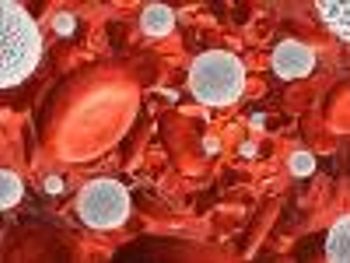
New cancer detection technique may reduce the need for costly low-dose CT scans.

New cancer detection technique may reduce the need for costly low-dose CT scans.

Process could lead to new treatments for diabetes and other diseases.

Proper nutrition leads to improved outcomes and increased CD4 T-cell counts.

Researchers evaluate how cancer cells adapt and survive in a new bone environment.

Epidermal growth factor receptors may offer cancer treatment target.

A regular dose of aspirin may reduce the risk of early cancer development.

An HCV infection may cause more than just liver damage.

Out-of-pocket costs projected to drop from 11.6% in 2013 to 10% in 2024.

Treatment uses photodynamic therapy with compounds that make cancer cells vulnerable to reactive oxygen species.

Medicare Part D contracting transparencies among issues that prompted action.

Rheumatoid arthritis treatment remains consistently well tolerated over long-term evaluation.

Changes still needed to further improve the decision-making process for patients.

Depression and fatigue loom as issues to overcome for patients with multiple sclerosis.

Study finds coffee consumption improves survival odds in some patients.

Research may lead to a gel that instantly destroys viral particles.

Novel kinase cascade found to regulate cancer growth.

Low bleeding rates found with intervals of up to 2 weeks between infusions.

Experimental drug shows promise in recent study.

Reaching the gap impacts access to medication and influences adherence.

New method may help personalize treatments for aggressive cancer.

Research may lead to alternative treatment options.

Compound kills breast, prostate, lung, and liver cancer cells without harming healthy cells.

Process could improve treatment of diseases such as hemophilia and cystic fibrosis.

Bill authorizes the VA to spend as much as $500 million for hepatitis C treatments.

Molecular partnership may generate much-needed new treatments for the disease.

Agreement with Immune Design could expand the potential of immunotherapy through combination approaches.

Onsolis provides opioid tolerant patients with an alternative dosing option.

Drug reduced chorea and writhing movements in patients afflicted with the disease.

Screening evaluates a large number of cells used in cancer therapy.

Research advances personalized cancer therapy.